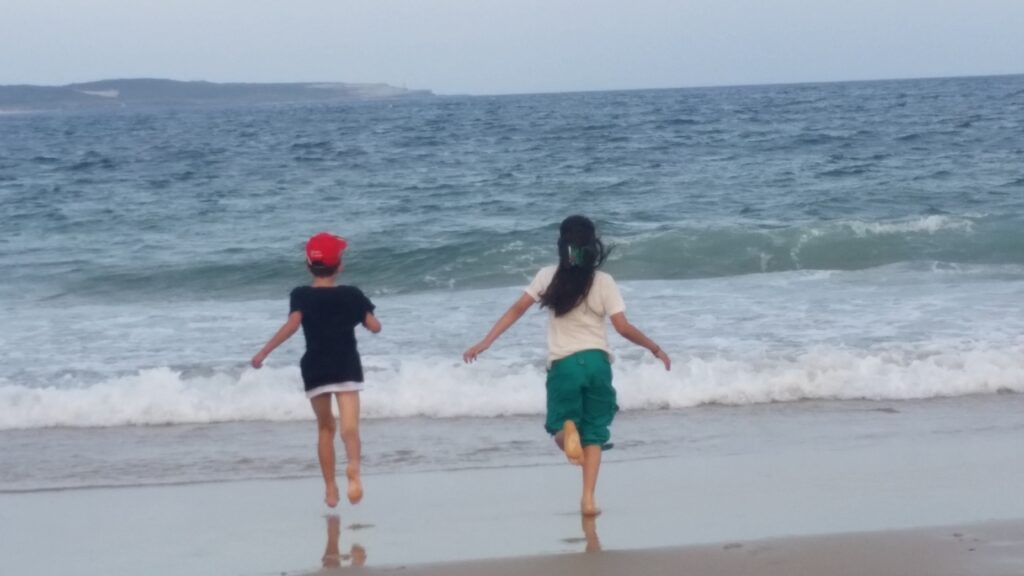The depressed brain is a time machine. It moves constantly between the past and the future looking for salvation. Lost forever from the present, it dwells almost exclusively in failures and fears. The way out is the present moment. The time machine is Mindfulness meditation.
If regret is the ‘time/ space continuum’ of mental health, then over catastrophising is the flux capacitor. Simply put, sadness at perceived mistakes keeps us lost in the past. Fear of trauma and catastrophe in an imagined future keeps us from enjoying the present.
To over stretch the metaphor, the present moment is our 88 miles per hour. It is our one and only way home. To live fully in the present is the only way we can avoid the pitfalls of pain and fear. The problem is that living in the present is about as easy as time travel. Theoretically possible if you ignore the paradox, but highly unlikely.
Mindfulness
I was introduced to mindfulness several years ago by a very clever Psychologist. Initially, after much effort, I found it to be only slightly useful when I was in crisis, but difficult to implement and next to unnecessary when I wasn’t. The reason for this was because I didn’t fully understand it.
It was a book that changed my mind. The Mindful Way through Depression- Freeing Yourself from Chronic Unhappiness by Mark Williams, John Teasdale, Zindal Segal and John Cabat Zinn is an astoundingly practical and accessible book. These four highly educated people, in various ways, were among the first intellectuals to see value in the practice of meditation in a modern mental health context. The book is a program that introduces you to the process. No jiggery pokery or quackery here. It is all evidence based psychology.
The oasis
Now mindfulness is akin to an oasis in my daily journey. I look forward to it and my subconscious sets an alarm for it everyday. If I dont keep at it regularly, both my wife and I begin to notice quickly. It is like a long weekend for my brain.
Obviously the authors of the aforementioned book will give you a much more accurate and detailed definition than I. Also, it should be mentioned that Mindfulness is not a cure for depression, however it is a highly effective complementary activity to assist you along the path to wellness.
My reason for singing the praises of Mindfulness come directly from my own experience as someone who has struggled with mental health. My background is in humanities, not the sciences. The ‘science’ thankfully has been taken care of. Essentially, when your mind spends most of its time analysing issues and actions, regretting choices and fearing the future, it gets tired, very tired. In fact it never gets any rest. By teaching yourself to stop everything, ground yourself and ‘just’ breathe for as little as 10 minutes, you are giving it a much needed rest.
Imagine if you will…
Imagine if you will, a strong piece of elastic that has been stressed to its limits for a very long time. Picture then allowing the stress out of that elastic. You will notice that the elastic is now no longer tense to breaking point. It has dramatically relaxed and next time it is tested, it will be under less stress for longer.
That is how mindfulness felt for me once I understood that I needed to be kind to myself when my mind inevitably wandered off. It is how I felt once I understood that being mindful wasn’t a task to be ticked off the list each day. Mindfulness was instead something that helped me get through some very dark days because it allowed me breathing room. It stopped me being too harsh on myself and it left me calmer. For those few moments, I just ‘was’ like the trees outside my window.
Meditation and mindfulness are buzzwords these days. As a topic they appear everywhere from self help to conferences for the upwardly mobile. Ironically, many have even tried to turn it into a business. Be wary. They are not the silver bullet to slay the monster that some promise them to be. They are simply a very healthy habit for everyone in our hyper connected world.
Some direction
Meditation and Mindfulness do not require you to subscribe or join a monthly program. The only money you might like to spend is on a good’ how to’ book and that is never a waste. I found my copy in a second hand store. YouTube is full of clips on mindfulness and most of them are really good. I regularly follow the meditation exercises of Mark Williams, one of the previously mentioned authors of The Mindful Way through Depression for free on YouTube as an example. The only caveat from my perspective is to stick to uploads from people that have a qualification until you know more about it and know what you want from a meditation.
Mindfulness has become an oasis in my day. It helps me in dark times to see the distant light ahead and it lets me enjoy that light when it inevitably shines again. It can do this for you too if you put in the time. To stretch the metaphor beyond itself, it is the only time machine that delivers you exclusively to the present moment.
(I get no money for this recommendation. It is also available on a range of other sites)
Mindfulness Meditation Body Scan – YouTube
(This is just one of many meditations to try).
Momentary Joy » The Good The Bad and The Unrelated
Vaguely related post.


I’ve never really understood the whole meditation/mindfulness thing until now. The elastic analogy is a good one. The exhaustion of an ‘always on’ brain is very real. I’m so glad you’ve found some useful tools to help release the pressure, to just be. I think this could help me too. Thanks so much for sharing.
Thanks Bron.
If I’m honest it took a bit of time to understand it. I was too goal focussed when I first tried. The effects seem to build up over time. Now its the best part of my day. Thanks for your lovely comment.
It is how I got through cancer treatment and addressed the fear and pain. Helps to still my mind when it is racing. Thank you Brendan.
That’s great to hear, Karen. Glad you are doing well. Wish I’d known about mindfulness 20 years ago.